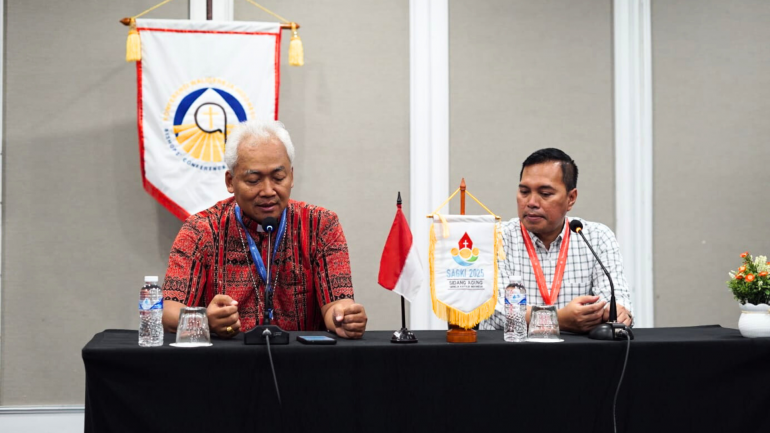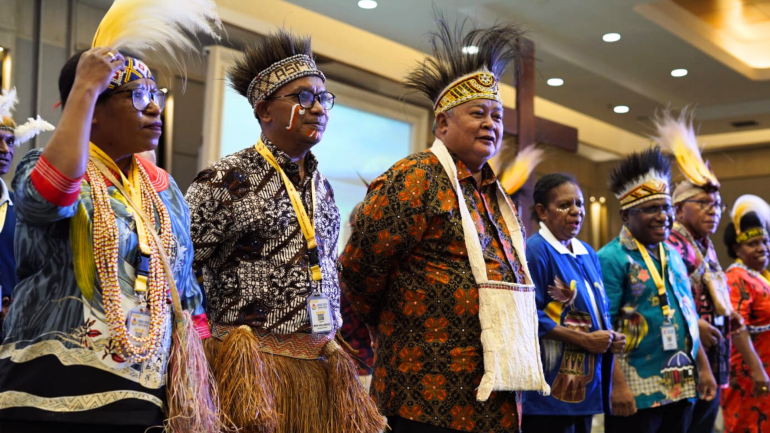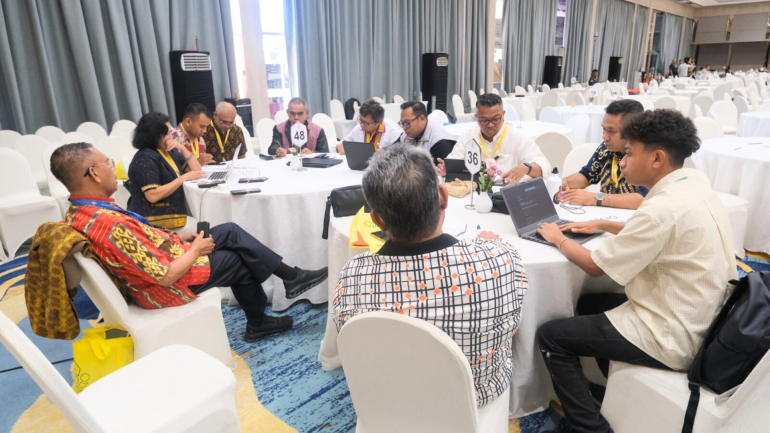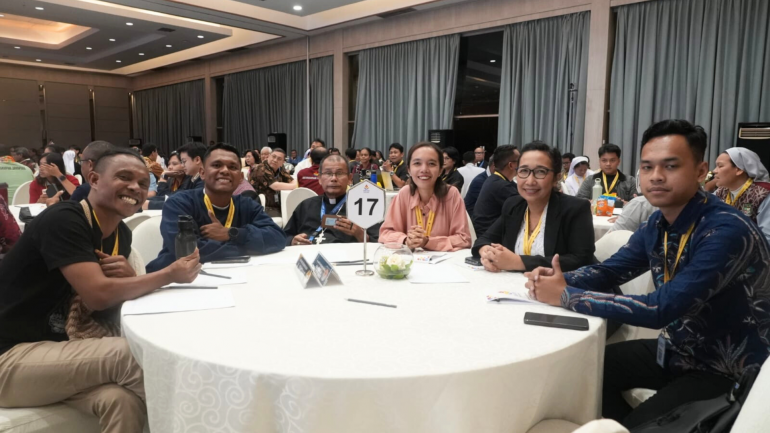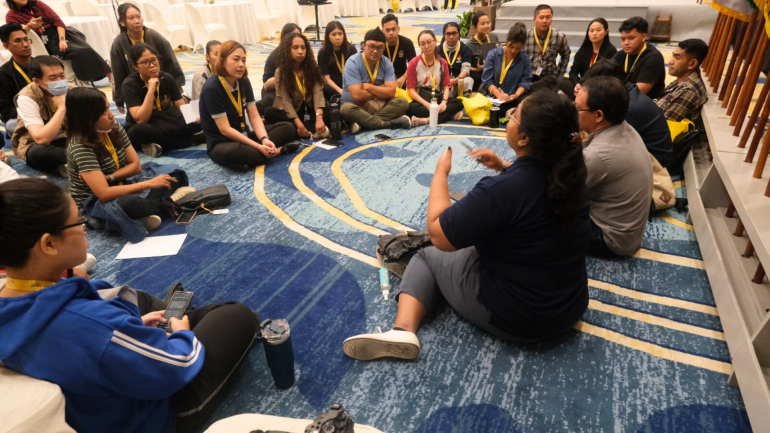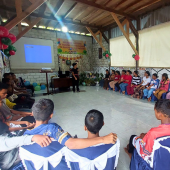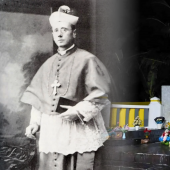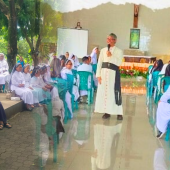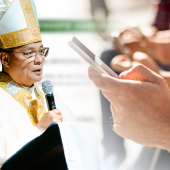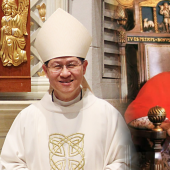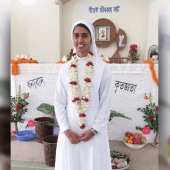SAGKI 2025: Indonesian Church Draws Up Pastoral Action Plans for Synodality
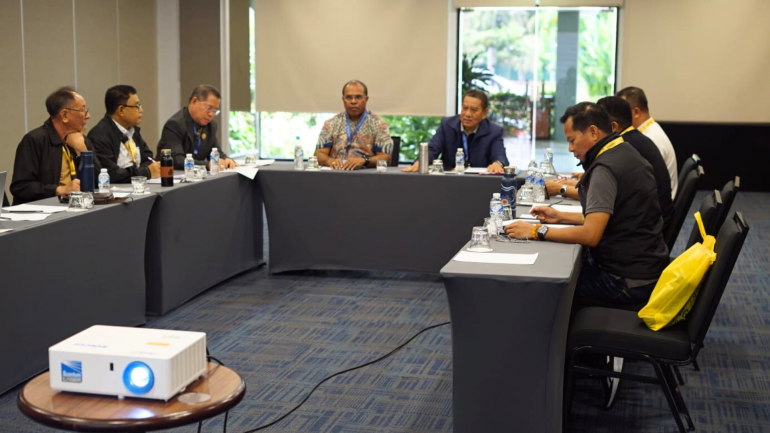
On November 6, the fourth day of the Fifth General Assembly of the Catholic Church in Indonesia (SAGKI V), held in North Jakarta from November 3–7, delegates worked on drafting pastoral follow-up plans for synodality in each ecclesiastical region. The process reflected the fruit of days of reflection, discussion, and insights shared by various speakers since the opening day.
In the spirit of journeying together, participants were divided into groups based on ecclesiastical regions to ensure that the proposed action plans would be contextual and aligned with the social, economic, and pastoral realities of each local Church. Each region was asked to identify three key and urgent issues that the Church needs to address concretely in its context.
The formulation process went beyond identifying symptoms or surface-level problems. Participants were encouraged to explore the root causes underlying these issues.
“In this way, the Church is expected to respond to various challenges more deeply and transformatively, not merely reactively to surface-level problems,” said Bishop Pius Riana Prapdi of Ketapang (West Kalimantan Province).
Evaluating the Church’s Weaknesses
Participants also engaged in a comprehensive reflection on the internal weaknesses of the Church, which may have contributed to the persistence of certain social problems.
“This awareness is expected to foster pastoral conversion and strengthen the Church’s collective movement grounded in faith, social justice, and the spirit of synodality,” the bishop added.
Originally a diocesan priest from the Archdiocese of Semarang in Central Java, Bishop Pius Riana Prapdi was appointed bishop of Ketapang in 2012.
The proposed follow-up plans include:
-
Concrete pastoral programs;
-
Faith-based foundations;
-
Directions for transformation;
-
Identification of local potentials and opportunities; and
-
Finding potential collaborative partners who can journey together.
This approach also aims to facilitate monitoring and evaluation (M&E) at the diocesan, parish, basic ecclesial community, and family levels.
Thematic Discussion Groups
In addition to the regional sessions, several thematic discussion groups were formed to address specific issues that had not been covered earlier.
“This dynamic became a tangible sign of the Church’s openness to the inspiration of the Holy Spirit, who works spontaneously among the faithful,” Bishop Pius explained.
All the results of these group formulations were later presented during the plenary session, enriching the pastoral direction of the Indonesian Catholic Church in the years to come.
Bishop Pius concluded, saying, “Through this process, the Indonesian Catholic Church is strengthened and renewed to continue her journey together as pilgrims of hope, revealing a missionary, dialogical, and transformative face in the midst of society.”
Radio Veritas Asia (RVA), a media platform of the Catholic Church, aims to share Christ. RVA started in 1969 as a continental Catholic radio station to serve Asian countries in their respective local language, thus earning the tag “the Voice of Asian Christianity.” Responding to the emerging context, RVA embraced media platforms to connect with the global Asian audience via its 21 language websites and various social media platforms.





